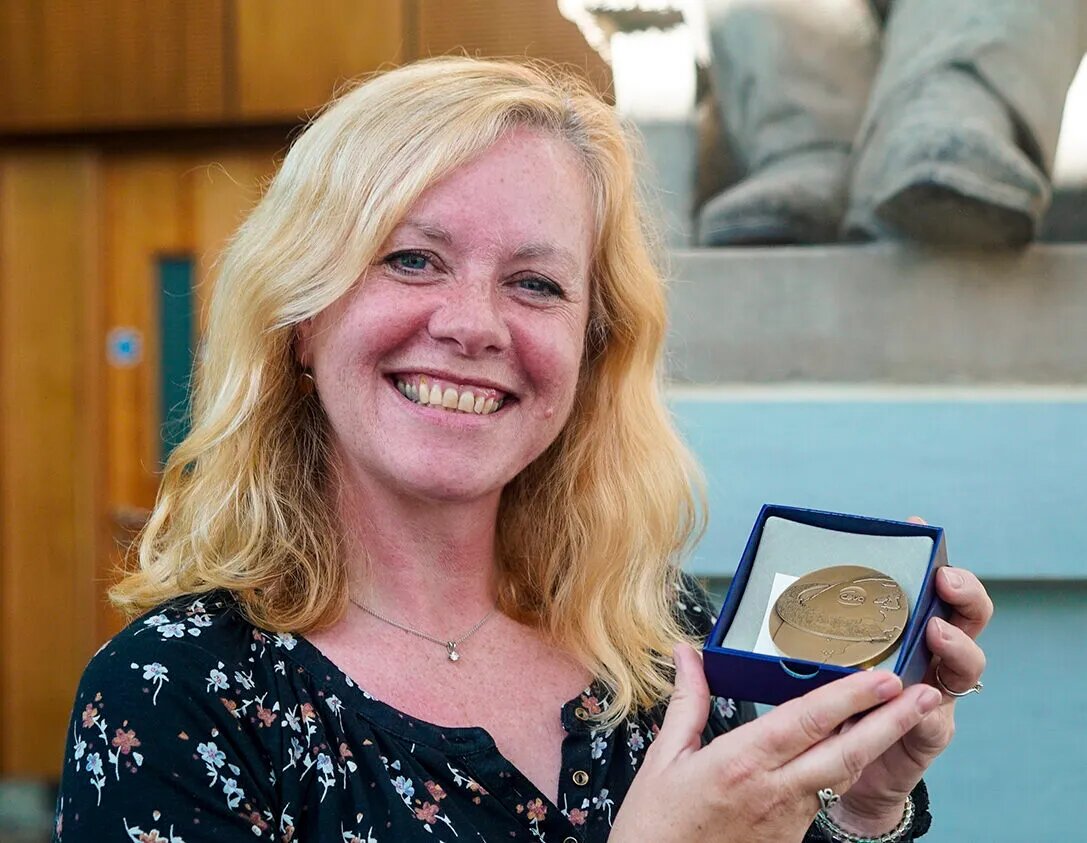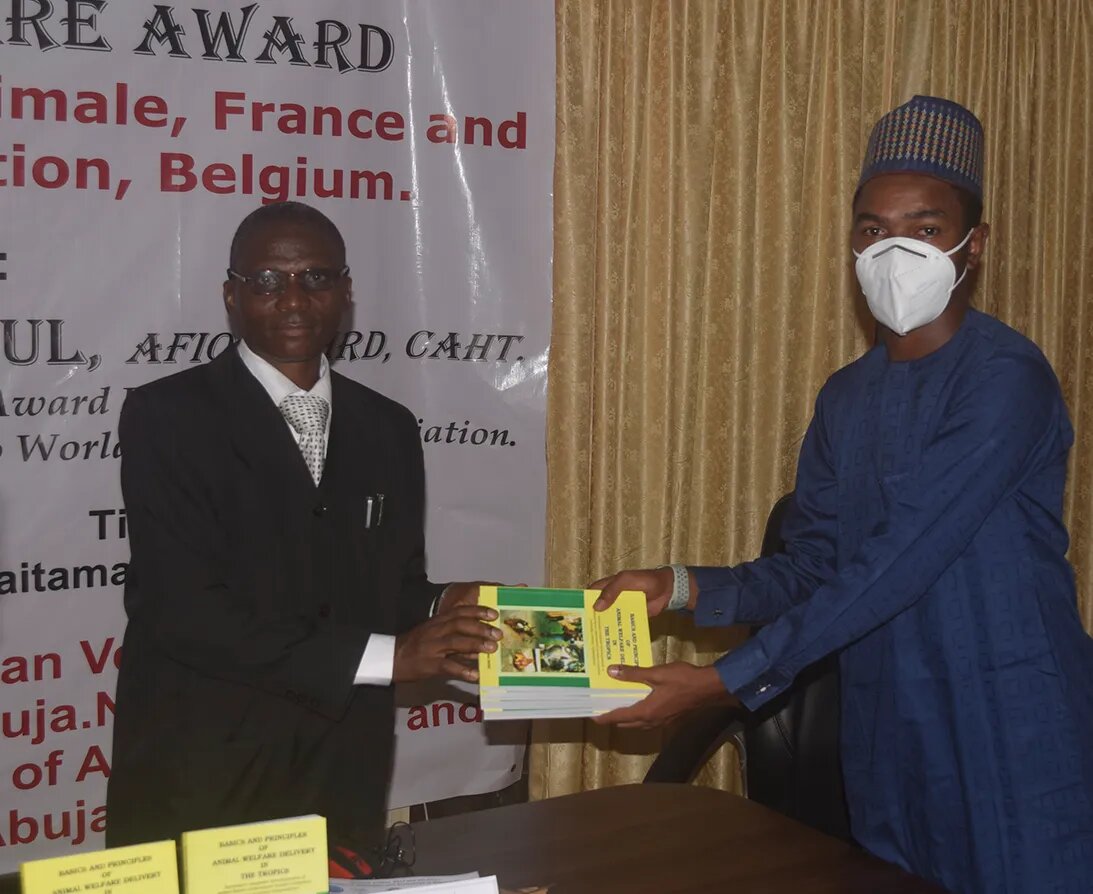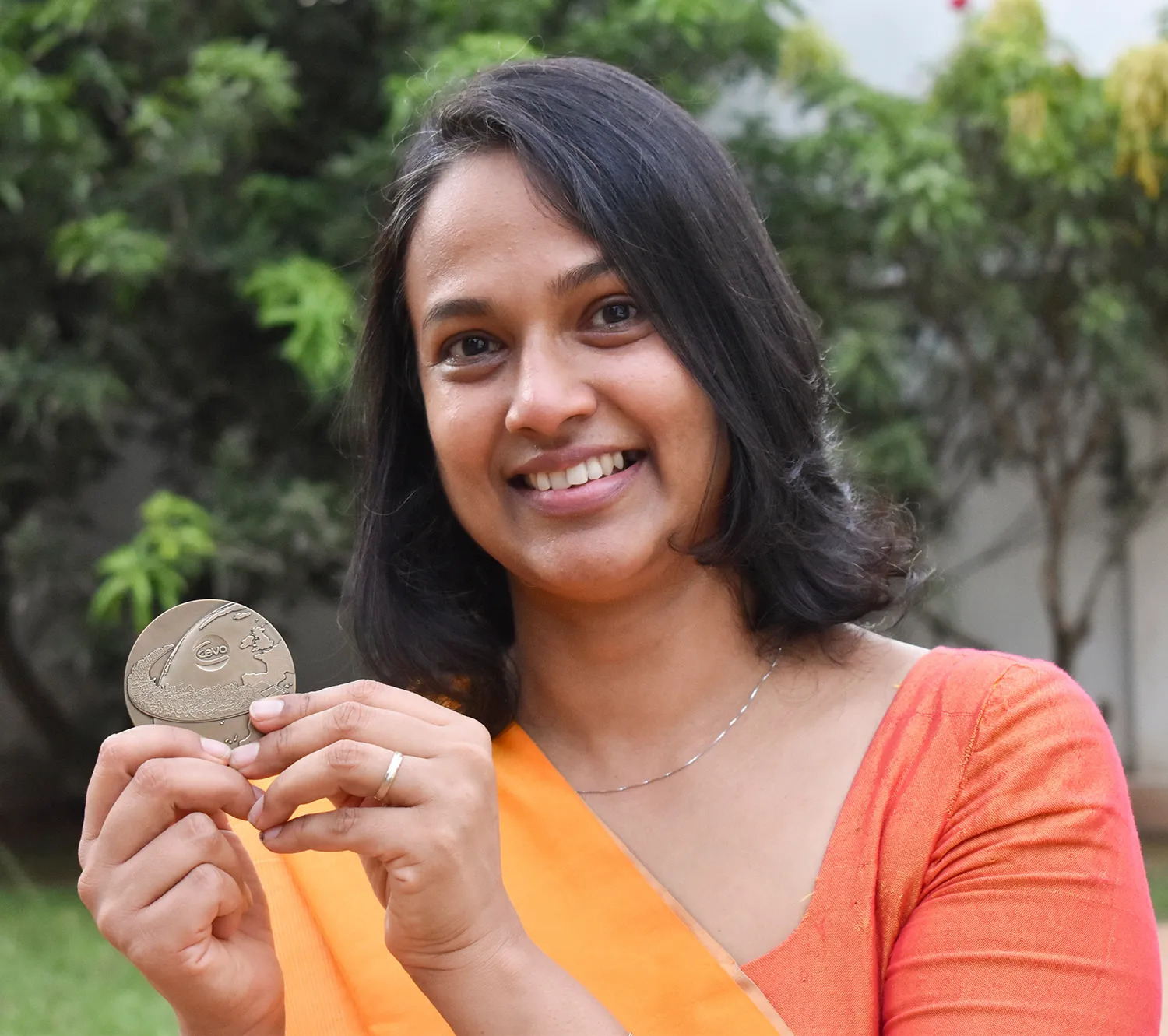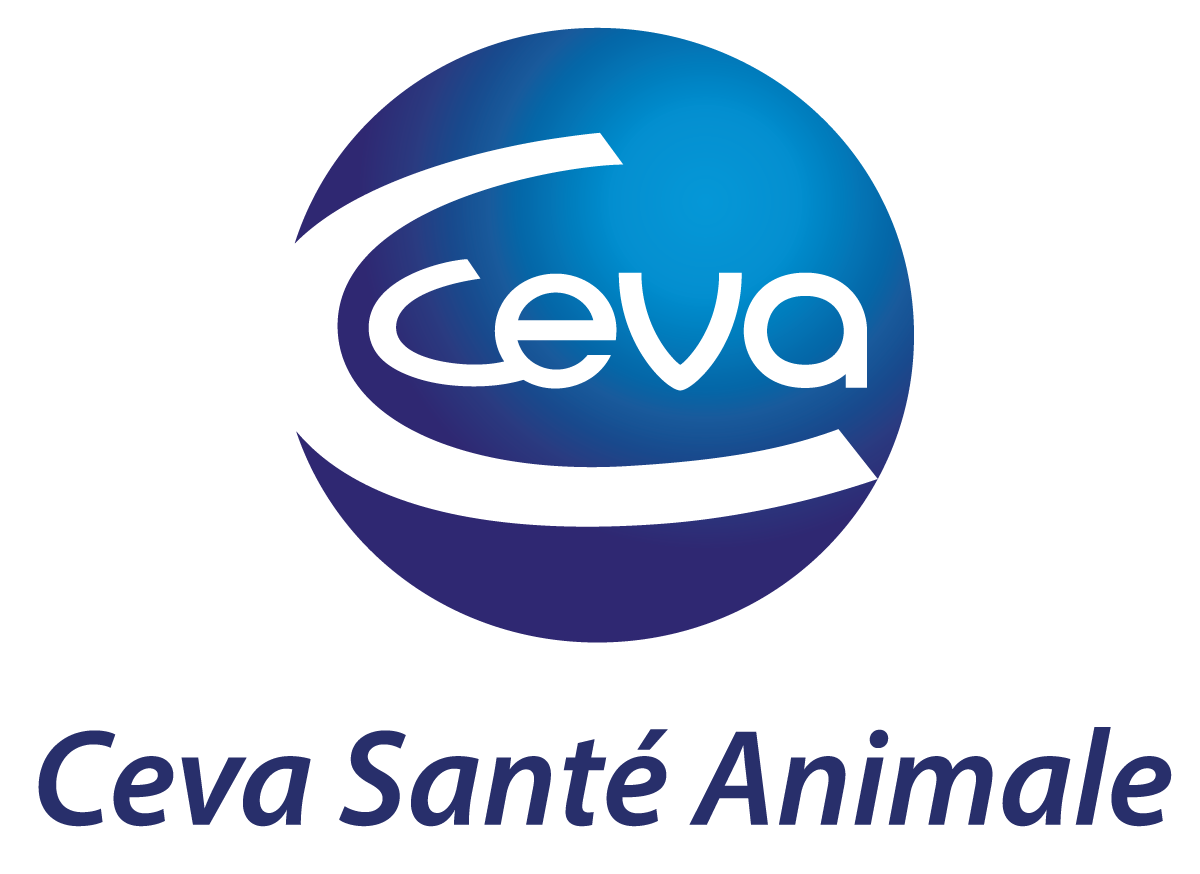The winners of the 2020 World Veterinary Association (WVA) Animal Welfare Awards, supported by Ceva, were announced during an online ceremony held as part of a WVA Virtual Seminar on the “Impact of the COVID-19 Pandemic on the Veterinary Profession – Ongoing Assessment”
Since 2017, the WVA Animal Welfare Awards, supported by Ceva, have recognised and rewarded individuals and organisations who contribute in their daily lives to the protection and welfare of animals by providing outstanding and exemplary welfare-related services to animals, animal owners and the public.
Over the past three years, inspirational veterinarians from all around the world have received the awards, which have been announced and presented at a ceremony held during the annual World Veterinary Association Congress. For 2020, some changes have been made.
Firstly, the awards have continued to evolve. For the first few years, only veterinary professionals could be nominated for the welfare awards. In 2019, a category was created for veterinary students and, for 2020, two new award categories have been added to recognise outstanding contributions to animal welfare by veterinary technicians or nurses and also veterinary schools or colleges.
Secondly, like so many events held in 2020 the awards were forced to be presented digitally, following the cancellation of the World Veterinary Congress due to be held in Auckland, New Zealand earlier in the year. The awards were presented during the WVA’s virtual seminar, which focused on the impact the coronavirus pandemic has had on all aspects of the veterinary profession all around the world.
Commenting on the evolution of the awards, Dr Zeev Noga, WVA Executive Secretary, said:
“From the initial idea of just recognizing veterinarians, every year we’ve improved together with Ceva. We thought about how we can make it even more significant, how we can reach not only the veterinarians but the future of the profession. So now we recognize students and also the schools which teach them about animal welfare. And we mustn’t forget the para-professionals, the technicians, the nurses who help the veterinarians to deliver the best practices in animal welfare. Their work results in better welfare of animals.”
The winner of the newly created award for veterinary schools or colleges is:

Royal (Dick) School of Veterinary Studies
University of Edinburgh, Scotland.
In this photo: Professor Cathy Dwyer, Director of Jeanne Marchig International Centre for Animal Welfare Education
The Royal (Dick) School of Veterinary Studies has been at the forefront or teaching of and research into animal welfare for more than half a century. The school can justifiably claim to be the birth place of animal welfare science through its establishment of the Society for Veterinary Ethology in 1966. This was a response to increasing societal concern at that time. In 2016, the veterinary school hosted the 50th annual meeting of the society, now renamed the International Society for Applied Ethology, with 600 participants attending.
Through its pioneering investigations into farm animal welfare, Edinburgh provided the evidence base that led to some of the first legislation on the management of laying hens and pigs, for example banning barren cages and gestation crates in UK and EU.
Since 2011, Edinburgh has been home to the Jeanne Marchig International Centre for Animal Welfare. The Centre provides teaching to Edinburgh’s veterinary students and also has an active outreach program which focuses largely on improving veterinary education in animal welfare in Asia.
At Edinburgh, animal welfare instruction is integrated across all years of the veterinary curriculum. The veterinary school is committed to finding replacements for the use of live animals in teaching. Thanks to a combination of innovative models, mannikins and computer simulations, no clinical procedures are now carried out on living animals solely for the purposes of education and students are taught to respect the welfare and dignity of living animals from day one.
Professor Cathy Dwyer, Director of Jeanne Marchig International Centre for Animal Welfare Education, explained:
“One of the reasons for setting up the Centre here at the vet school was a concern that vets should be the voices for animal welfare, they should be advocating for animal welfare in policy and other areas, and perhaps those voices weren’t strong enough. So, part of our thinking and our teaching is to help support our students to have the skills to engage in those sorts of things.”
The winner of the inaugural award for outstanding contributions to animal welfare by veterinary technicians or nurses is :

Olukayode Paul Oluwadare
Chief Animal Health Technologist, Federal College of Animal Health and Production Technology, Ibadan, Nigeria.
Dr Oluwadareis a passionate, lively and inspirational teacher and prolific author who also finds the time to serve on numerous committees and plays many roles both within the college and outside, making extensive contributions in the fields of animal welfare and health and beyond.
Dr Oluwadare was clearly delighted to receive his award:
“To represent Nigeria as an ambassador of Africa in animal welfare delivery for 2020 – initially I thought I was in dreamland and I don’t feel like waking up from the dream.”
The winners of the three 2020 WVA Animal Welfare Awards for veterinarians are:

Gareth Bath
Emeritus professor of the Faculty of Veterinary Science, Onderstepoort, South Africa.
Professor Bath has been active in the field of animal welfare in South Africa over five decades. During this time, he has undertaken research; taught veterinary students – instilling into them that animal welfare is an integral part of management, health and care; provided leadership and expert opinions to inform a wide range of welfare-related policies and practices – especially through chairing for the past 10 years the Livestock Welfare Coordinating Committee, during which time the committee has been transformed into a financially secure and effective organisation; and has mediated between the livestock industry and welfare organisations to find mutually acceptable solutions, amongst many other contributions.
He feels strongly that animal welfare, like all important issues, needs to be approached through teamwork and consensus building but pushed to consider his individual role he commented:
“Aiming at consensus is not easy and that’s been the skill I’ve had to have to make sure that people can agree on a common position and I think that’s perhaps one of the biggest contributions that I’ve individually made.”
Professor Bath’s skills in this area have helped to enhance the welfare of livestock at auctions, pigs at slaughter and wool sheep, to mention but a few examples.

Paul McGreevy
Sub Dean Animal Welfare, Sydney School of Veterinary Science, University of Sydney, New South Wales 2006, Australia.
Paul’s work related to animal welfare includes serving as chief investigator and chair of VetCompass Australia. This initiative collects clinical records from veterinary practices and aggregates them for researchers to interrogate. Through the collection and sharing of records from numerous practices, veterinary professionals are able to deliver a vastly improved level of care for companion animals that will improve their quality of life.
Paul is also passionate about horses, including those he owns and breeds at his home in the Hunter Valley. A major focus of his work focuses is the use of equipment, such as whips in horseracing, tight nosebands and tongue ties, and their impact on equine welfare.
Speaking about Paul, Dr Bidda Jones of the RSPCA Australia said:
“He has done so much to change the way we think about animals, particularly horses and dogs, and to bring animal welfare into people’s living rooms because he’s such a fantastic communicator about the issues he’s been working on and clearly feels very passionate about.”

Dr Tharanga Thoradeniya
Department of Biochemistry and Molecular Biology, Faculty of Medicine, Sri Lanka.
Dr Thoradeniya is passionate about improving the welfare of animals used in research in Sri Lanka, although she acknowledges that this issue is in its infancy in the country.
In nominating Dr Thoradeniya for the WVA award, Dr D.D. Niranjala de Silva, President of the Sri Lanka Veterinary Association, said:
“She is truly a young leader who has steered the local laboratory animal science and veterinary community very well…I am certain that this award will enable her to reach heights creating the ‘Culture of Care’ in the country and the region that she is passionate about.”
Through her teaching at the university, leadership positions in various organisations- including the Sri Lankan Academy of Young Scientists, Sri Lanka Association for Laboratory Animal Sciences, Sri Lanka Veterinary Association and the bioethics committee of the National Science Foundation, publications and participation at national and international conferences, she has promoted the ‘3 Rs’ in laboratory animal science (replacement, reduction and refinement) and generally enhanced awareness about the ethical use of animals in research, industry and education.
Dr Thoradeniya looks forward to “the day when every researcher in my country proudly and openly discuss how they address the welfare issues in their laboratory animals will be the day that ‘my dream come true.”
WVA student award for 2020:
Finally, the winner of the WVA student award for 2020 is Maya Cygańska, a sixth-year student at the Faculty of Veterinary Medicine, Warsaw University of Life Sciences, Poland.

In addition to being recognised by her teachers as being a hard-working, motivated and diligent veterinary student, Maya was selected to receive the student award for 2020 because of her commitment to helping her fellow students appreciate the importance of animal welfare.
Her greatest contribution to date has been to establish and organise what has become an annual event – the Ethical Dilemmas in Veterinary Education Conference (EDinVE Conference). She organised the first event for Polish veterinary students in 2017 but in 2018 and 2019 she was even more ambitious.
As Maya explained:
“I wanted the conference to be a safe space for expressing views, ideas and to create an environment in which being passionate about animal welfare is the default. I decided to transform the conference into an annual event and after the success of the first edition (aimed at a Polish audience), I opened the meeting to international students and held it in English. I was determined to create a community of veterinary students who truly cared about improving the standards of animal welfare locally and globally.”
As a direct result of attending the second EDinVE Conference in Warsaw, a participant from Brazil has been inspired to launch her own conference to help students from South America understand the meaning of veterinary ethics and animal welfare in their region.
As well as organising the EDinVE Conference each year, Maya has also organised a number of animal welfare-related workshops for veterinary students and she also organises and takes part in regular visits to local animal sanctuaries to gain first-hand experience and provide hands-on help.
Looking forward, after graduation Maya would like to work to influence policy on animal welfare in transport, which she considers to be a widely overlooked issue.
Commenting on the 2020 winners, Ceva Chairman & CEO Dr Marc Prikazsky said:
“What strikes me about all the winners is the real passion and total commitment they all display to advancing the cause of animal welfare in their work and lives. Not only are they all leaders in this field but they are also very hands-on in their approach. Beyond this, they are also all excellent communicators, helping others in the profession, students, animal owners and the general public understand that treating animals with respect and compassion is not a choice, but rather it’s an obligation. Animal welfare is a core value for Ceva and I am proud to partner with the WVA again this year and celebrate the contribution these six very worthy winners have made to improving the welfare of animals in so many creative and inspiring ways.”
